Cleric Killed In Southern Iran In ‘Suspicious Murder’
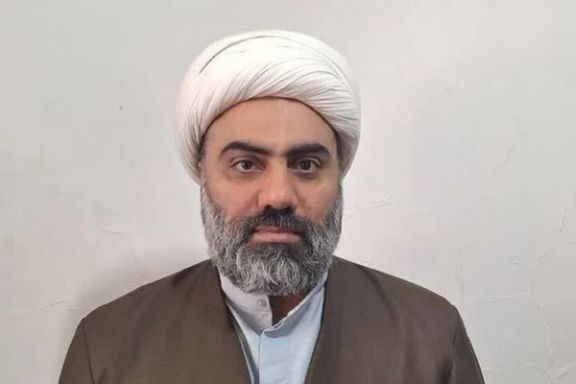
The Deputy of the Mahshahr Seminary was found dead in what has been called a ‘suspicious murder’.

The Deputy of the Mahshahr Seminary was found dead in what has been called a ‘suspicious murder’.
The seminary's news agency identified the victim as Hamzeh Akrami, a professor at the seminary.
The director of the Khuzestan Seminary labeled the cleric's death as a "suspicious murder."
On Monday, Ali Dehghani, the chief of judiciary in Khuzestan, announced the arrest of a suspect linked to the murder case.
He stated, "The suspect has been apprehended along with the stolen car belonging to the victim in Bushehr Province," as reported by Khabar Online.
Although the judiciary refrained from providing further details, reports indicate that Akrami was allegedly killed by thieves, with his body discovered near Mahshahr's railway.
The incident adds to a trend of violence against clerics in Iran amid a nationwide uprising against the Islamic Republic since its founding, sparked in 2022 by the death in morality police custody of Mahsa Amini.
In May, Abbasali Soleimani, a member of the Assembly of Experts and former representative of the Supreme Leader in Sistan and Baluchestan Province, was fatally shot by a bank guard in Babolsar, Mazandaran province. The perpetrator was later executed by the judiciary of the Islamic Republic.
In another incident in May, a 35-year-old cleric was reportedly struck by a passenger car on Marzdaran Boulevard in Tehran, as reported by Tehran police. Additionally, there were reports of attacks on Friday prayer leaders near Saveh and Tehran during the same period.
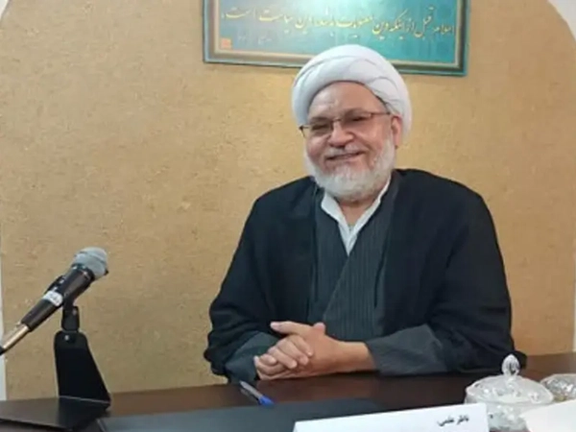
Mohammad Faker Meybodi, a faculty member at the Center for Islamic Sciences, has sparked controversy with his recent remarks advocating for the possession of nuclear arms.
Speaking on the historical context of military weaponry as outlined in the Quran, Meybodi emphasized the need for contemporary armaments to deter adversaries effectively.
"At the time when the verse related to military weapons was revealed in the Quran, the weapon of that era was the swords and spears... Today, it may be necessary for us to possess nuclear weapons to intimidate the enemy. We must equip ourselves with modern weapons," Meybodi stated.
His statements contrast with the stance previously expressed by Iran's Supreme Leader, Ali Khamenei, who feigned to denounce the acquisition and use of nuclear weapons, citing religious prohibitions. Khamenei's fatwa against nuclear arms dates back to the mid-1990s and has been reiterated on numerous occasions, emphasizing Iran's commitment to “peaceful nuclear endeavors.”
Despite Iran's assertions that its program is for civilian purposes, UN inspectors last year claimed Iran has accelerated its nuclear enrichment program.
In December, the UN's atomic weapons watchdog agency, the IAEA, sounded alarm bells regarding Iran's illicit enrichment of uranium. Tehran was reported to have reversed a months-long slowdown in the rate of uranium enrichment, reaching levels of up to 60-percent purity, approaching the approximately 90-percent threshold for weapons-grade uranium.
The Joint Comprehensive Plan of Action (JCPOA), an agreement reached in 2015, aimed to address these concerns by limiting Iran's nuclear capabilities in exchange for sanctions relief. However, the withdrawal of the United States from the JCPOA in 2018 reignited tensions and cast uncertainty over the agreement's future.
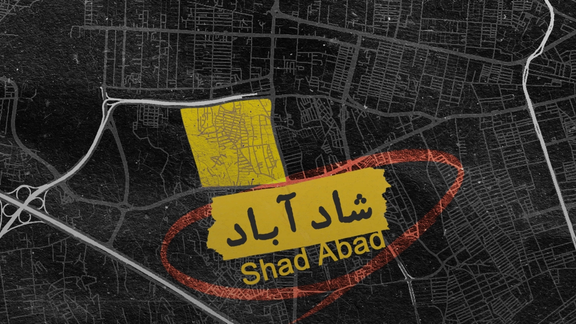
In early August 2020, an industrial production workshop in the Shadabad area of Tehran was reportedly set ablaze by an individual named Masoud Rahimi, accompanied by eight others.
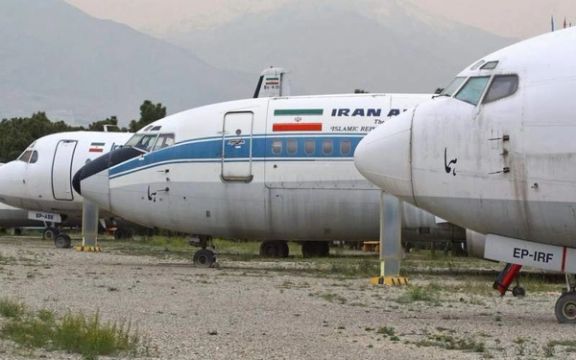
Amid sanctions, Iran's aviation industry is struggling to meet operational aircraft targets with only 180 aircraft currently in service, falling short of the planned 250 by the end of last year.
Led by Mohammad Mohammadi-Bakhsh, the head of the Civil Aviation Organization, officials stressed the need to expand the fleet to accommodate the country's population, estimated to require 550 aircraft.
However, with only 330 aircraft in the fleet and less than 200 actively utilized, the industry faces a considerable deficit in the face of global sanctions for Iran's nuclear program, human rights abuses and support of Russia's invasion of Ukraine.
Mohammadi-Bakhsh previously reported a surge in operational aircraft before Norouz, with grounded planes returning to service, boosting operational numbers to 178 during the festive season. Last year he claimed that procurement efforts had resulted in over 50 aircraft and helicopters being added to the fleet, but the target of 250 operational aircraft by year-end remained unmet.
However, last month, he admitted operational challenges such as delays in customs clearance for aircraft parts, remained a significant hurdle.
Amidst repair initiatives, domestic production limitations, and import restrictions, Iran's aviation industry faces additional challenges. Reports of flight delays and safety concerns within Iranian airlines further compound the industry's woes.

After self-congratulatory Norouz messages by top leaders this week, relatively independent media in Tehran published sharp criticism by pundits who sounded dire warnings about the coming year.
The fact that in Iran's government-controlled media landscape the criticisms have been published immediately after Supreme Leader Ali Khamenei and President Ebrahim Raisi's New Year messages, indicates that compared with even a few months ago, the government has effectively lost its authority and control.
In Iran's government-controlled media landscape, the publication of criticisms immediately following Supreme Leader Ali Khamenei and President Ebrahim Raisi's New Year messages signifies a notable shift. This suggests that the regime has lost more credibility and its control over public discourse has somewhat weakened, especially when compared to just a few months ago.
Khamenei in his new year message had challenged the US and Israel and claimed that America’s supremacy in the Middle East was waning. He also took pride in the recent elections in Iran, although they have been branded by Iranian media and political observers as the worst in the history of the Islamic Republic in terms of turnout and representativeness.
Meanwhile, in his mostly ignored Iranian New Year message, Raisi as usual presented fabricated figures about economic progress, especially in the areas of housing and employment, while everyone else speaks about declining living standards.
In a report published by Tehran-based Khabar Online news website on March 21, the second day of the Iranian New Year, experts outlined the missed opportunities in foreign relations, emphasized the government's economic failures, and called for radical changes in its policies.
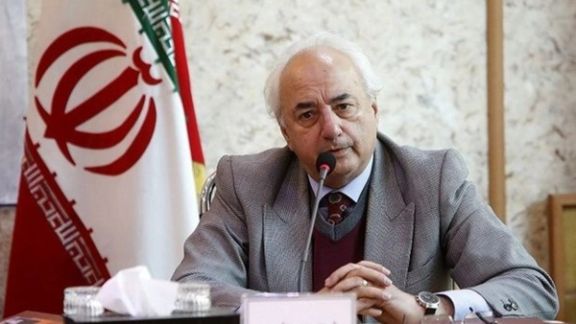
The website quoted former diplomat Fereidoun Majlesi, who expressed concerns about Iran's diminishing international standing as its economic conditions worsen. Majlesi highlighted Iran's isolation throughout the past year and its failure to establish effective diplomatic relations with other nations.
He emphasized that Iran's foreign policy predominantly revolved around its relations with Arab countries and its stance on the conflict in Gaza, neglecting efforts to mend its strained relations with Western nations.
Echoing sentiments shared by many Iranian foreign policy experts, Majlesi called for a reassessment of the Islamic Republic's foreign policy to better serve the country's national interests. He noted Iran's lack of a coherent foreign policy framework, with limited diplomatic ties beyond its relationships with Syria and a handful of African states. Other nations either tolerate Iran or have severed diplomatic relations altogether.
He emphasized that although Iranian diplomats repeatedly speak about their readiness to revive the nuclear talks, there has been absolutely no progress in that area.
Meanwhile, international relations expert Alireza Bigdeli criticized Iran's one-sided relationships with Russia and China, emphasizing that the East cannot effectively assist Iran in revitalizing its struggling economy.
Bigdeli highlighted that when Joe Biden assumed office as US President, he pledged to engage in negotiations with Iran to resolve the nuclear standoff. However, Iran missed this opportunity due to its involvement in regional crises, resulting in no progress. Additionally, Bigdeli noted that Iran alienated the European Union, with Europe refraining from issuing harsh resolutions just because Washington did not want to up the ante.
He argued that Iran can only improving its foreign relations once it stabilizes its ties with the West. On the other hand, Ghasem Mohebali, another foreign relations expert, called for a comprehensive reassessment of Iran's foreign policy in the new year. He highlighted that Iran lost control over the nuclear negotiations last year, leading to heightened sanctions.
Mohebali expressed concern that with the potential return of Donald Trump to the White House, Iran should be more vigilant than ever about its relations with Washington. He identified a major issue with Iran's foreign policy as the lack of control by its Foreign Ministry, with other influential players, such as Khamenei and the IRGC, steering the country toward alliances with Russia and China, hindering a balanced foreign policy approach.
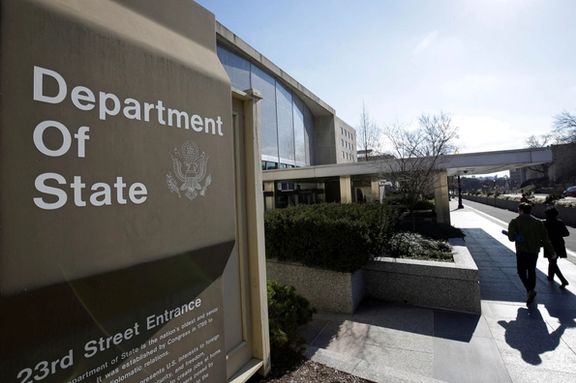
The backlash by Iranians to a US State Department post on Instagram continued Saturday with 80 Iranian-American activists and citizens urging the Secretary of State to have it removed.
“It is deeply concerning that the US State Department would endorse and promote an individual with such tainted history and character as a defender of Iranian women,” the signatories write in their open letter. “This decision undermines the credibility of the United States in advocating for human rights and democracy… in Iran.”
The ‘individual’ in question is Faezeh Hashemi Rafsanjani, a former member of parliament in Iran and daughter to a former president of the Islamic Republic. In recent years, she has become a critic of government policies and has voiced support for women's rights. She has been hailed as a “champion of women rights across Iran” by the State Department’s official account in Persian @USAbehFarsi.
“Ms. Rafsanjani is against compulsory hijab, supports women's rights and defends other prisoners whom she considers innocent,” reads the original State Department post. “Even when her rights were violated, Ms Rafsanjani bravely fought for the rights of others.”
The post was received by anger and disbelief among Iranians, who felt the choice was “at best distasteful”, given that Ms. Rafsanjani’s father, Ali Akbar Hashemi Rafsanjani, was the main architect of the regime and at the heart of its every malign activity –inside Iran and overseas– for almost four decades.
“The Islamic Republic regime routinely imprisons individuals within the establishment for minor disagreements, and Mrs. Hashemi Rafsanjani's situation appears to be part of an internal power struggle, rather than genuine commitment to justice on either party,” reads the letter to Secretary Blinken. “We urge you to… support individuals who genuinely champion the rights and freedoms of all Iranians –women and men– and their struggles for a secular, democratic Iran.”
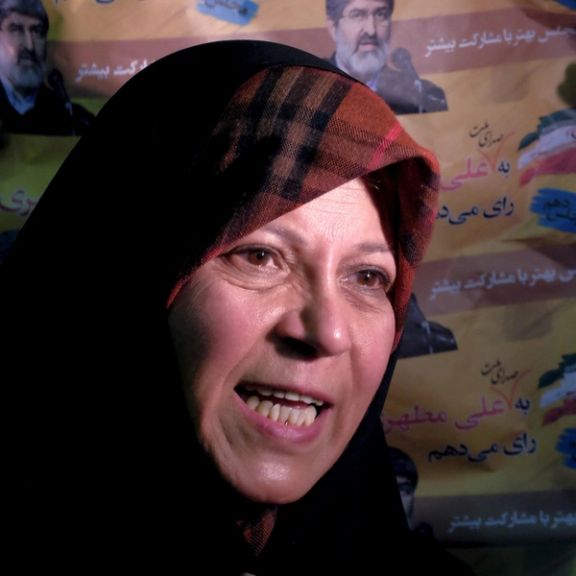
The sentiment in the letter was shared by many Iranians who have moved on from the Reformist-Fundamentalist duality of regime insiders to reject the Islamic Republic in its entirety. In this view, Faezeh Hashemi Rafsanjani is ultimately an “insider” with unmatched privilege in her social and political life, despite her having become a critic of regime policies. Hence the outrage at the State Department’s decision to pick and promote her.
Within a few hours of appearing on Instagram, the Faezeh Hashemi post received just under 5,000 comments, overwhelmingly negative, which forced the account’s administrator to close the comments section. The backlash continued, nonetheless, spilling over to other platforms such as X.
Most notably, several members of the families who have lost loved ones in recent anti-regime protests took to social media to vent their anger, frustration, and often bafflement at the Biden administration’s Iran policy.
“No doubt that the US State Department is consciously walking alongside the Islamic Republic towards common goals,” posted Saeed Afkari, a brother to Navid Afkari, who was executed in 2020 at the age of 27, for protesting, despite pleading innocence in the face of severe mental and physical torture.
Saba Bakhtyari, whose brother and sister-in-law are in prison for speaking against the killing of their son, Pouya, was another of the Families for Justice who denounced the US government and their Instagram post.
“For us who seek justice, there’s no difference between Faezeh Rafsanjani, [current President] Raisi, and [Supreme Leader] Khamenei,” she wrote on her account on X. “And the fact that the US State Department has called one of our killers brave, proves that the US, just like 1979, is still a friend of the mullahs and an enemy of the people of Iran.”